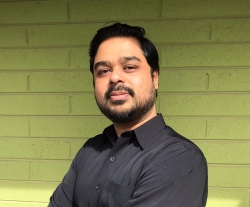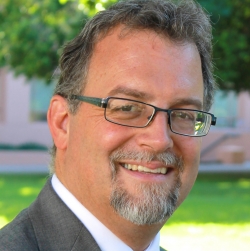November 4: Saurabh Biswas, Arizona State University, Clark Miller Moderator
"Understanding the Energy-Poverty Nexus: A Transdisciplinary Approach for Designing Sustainable Energy Transitions"
View a recording of this talk.
About the Speaker and Moderator
headshot_sb.jpg

Saurabh Biswas, is a post-doctoral research associate at the Center for Energy and Society and a recent PhD from the School of Sustainability (Arizona State University). He is a founding member of the Grassroots Energy Innovation laboratory (https://energythriving.wordpress.com/) at ASU and studies complex relationships at the intersection of poverty and energy systems. His research focusses on advancing the theoretical understanding of the energy-poverty nexus and developing transdisciplinary methods and tools for co-designing energy interventions that transition marginalized communities to sustainable futures. Biswas works closely with civil society groups, small businesses and non-profits in South America, Africa and Asia, for developing localized knowledge, capacities and energy projects for disrupting the energy-poverty nexus. He currently coordinates a long-term applied research project on energy systems transition for socio-economic sustainability of communities in Sierra Leone. Biswas earned a Masters in Energy Systems Engineering form University of Petroleum and Energy Studies (Dehradun, India) and gained industry experience as a design engineer for off-grid and grid tied solar PV projects. He was a USAID Global Development Research fellow in 2016 and 2017, when he co-founded the Sustainable Rio Claro 2020 initiative in Brazil (https://rioclaro2020.wordpress.com/).
clark_miller-square.jpg

Clark A. Miller is Professor in the School for the Future of Innovation in Society and Director of the Center for Energy & Society at Arizona State University. His work focuses on the human and social dimensions of energy transitions, including the human work of transforming socio-technical systems, the challenges and opportunities of inclusive and just transitions, and the imagination and deliberation of future designs for societies powered by carbon-neutral energy sources.
About the Talk: Historically, energy systems tend to create classes of 'haves' and 'have-nots'. Thus, some groups gain net positive benefits while others face exacerbated poverty and deepening socio-cultural externalities, diminishing any gains in well-being from modern energy services. Such divides are usually along ethnic, racial and indigenous contours, in rural communities or among the urban poor. This complex relationship can be termed as the energy-poverty nexus. Therefore, while pursuing universal access to clean and affordable energy as part of the global sustainable development agenda, concerns about their outcomes remain in terms of fair and equitable development, freedom of choice and restorative justice, even in a potentially energy sufficient future.
This talk pivots on the increasing evidence from literature and several field investigations of off-grid energy systems which show that a scant understanding of the energy-poverty nexus undermines sustainable energy transitions. Three interlinked aspects of the energy-poverty nexus are discussed here. First, it discusses epistemic tensions created by the multiple and simplistic definitions of energy poverty. Their inadequacy in capturing layered interactions of the energy-poverty nexus necessitates improved theoretical approaches, which are better suited to the complexity of the problem. Second, the energy and human well-being relationship is explored as a contextual and emergent landscape, shifting the theoretical basis from an individualized energy consumption proxy to a holistic perspective of the social value of energy, capturing a range of benefits, burdens and consequences for people and communities. Finally, the actors-interaction-spaces (AIS) framework is discussed as a novel polycentric theoretical framework for understanding energy-poverty nexus. AIS is a synchronous framing of the complex relationships, characterizing structures, conditions and feedbacks that lead to outcomes in multi-layered socio-energy systems, not adequately captured by simple causality.